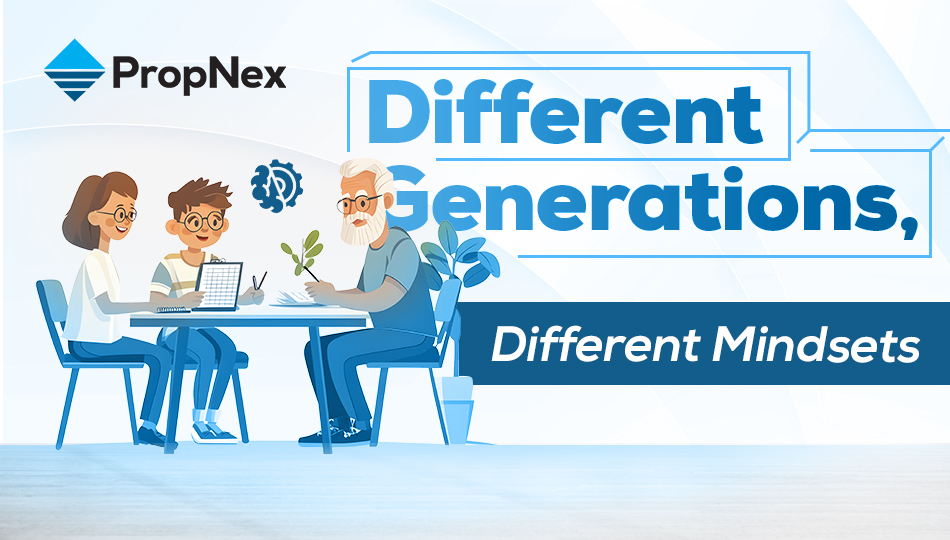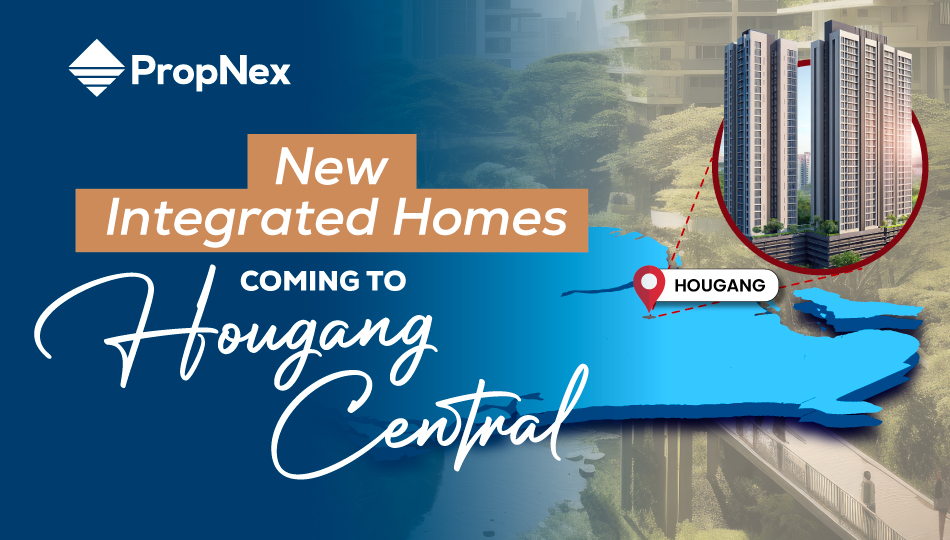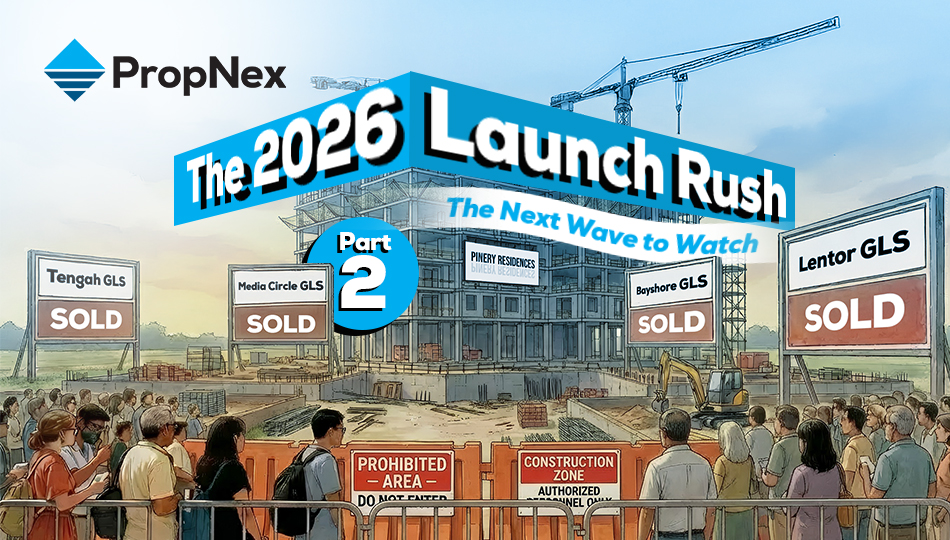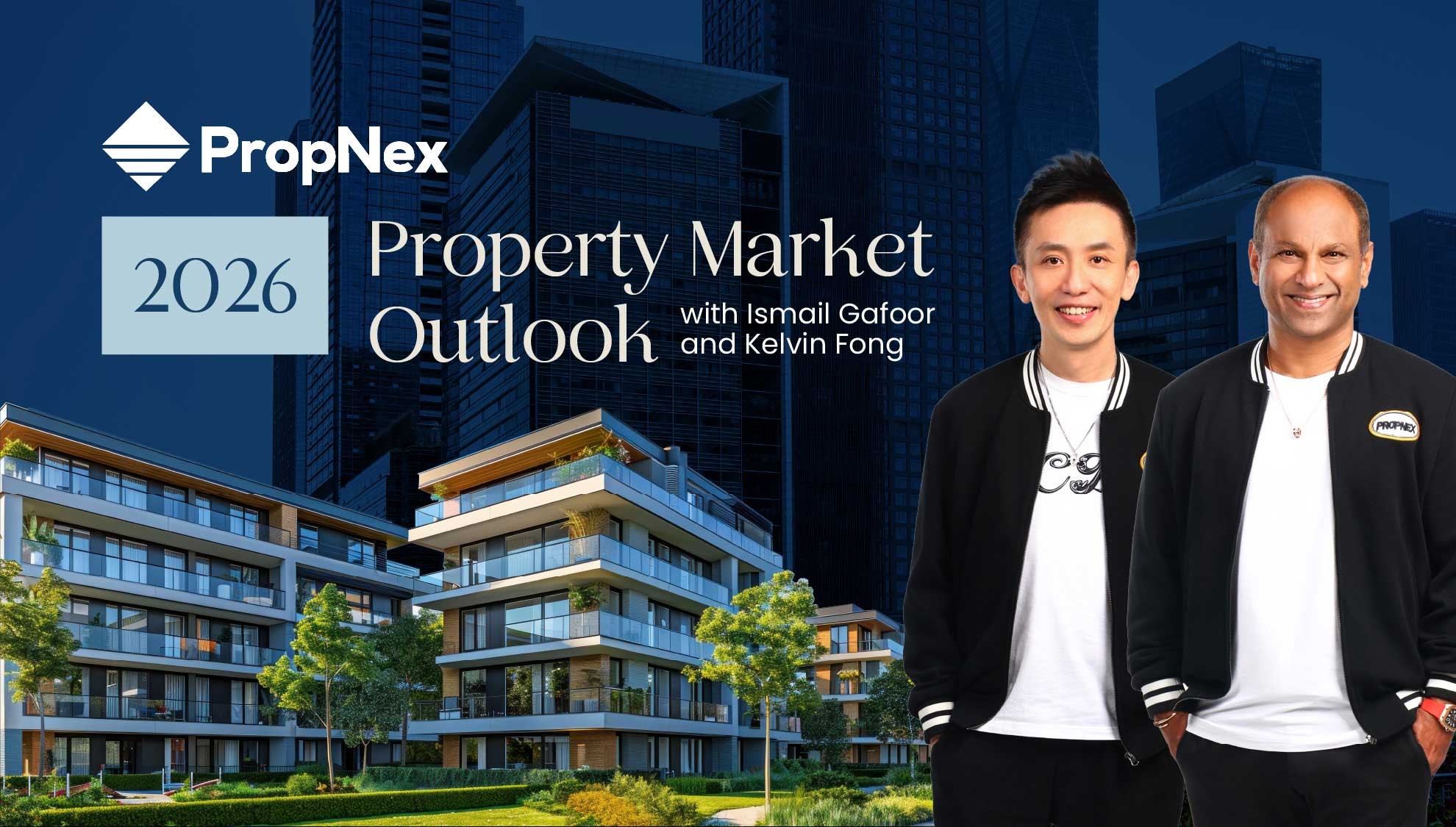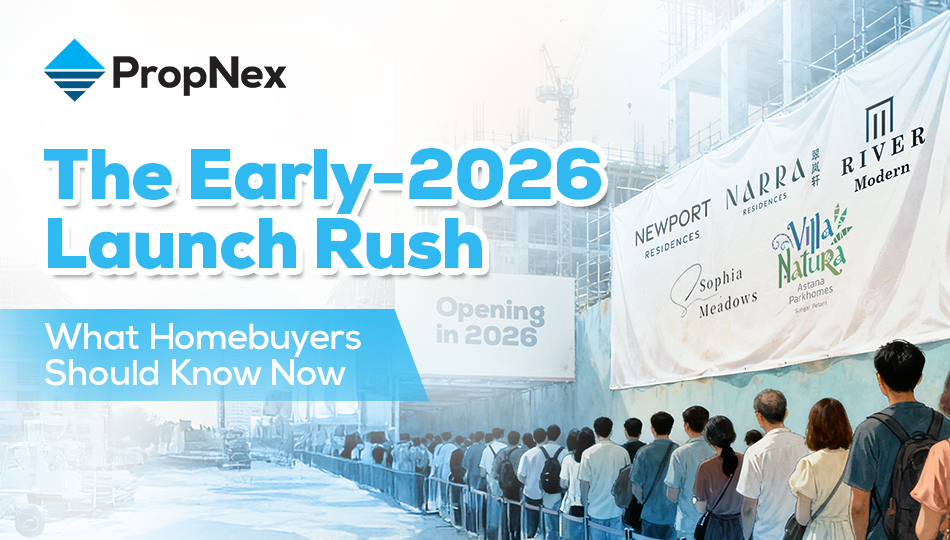Boutique VS Mega Developments: Which To Go For?

If you are a first-time homeowner stepping into private properties or an HDB upgrader ready for your next big investment, congratulations! You are on the brink of one of the most exciting yet challenging choices in Singapore's property market.
Apart from choosing between freehold or leasehold, the decision to go for boutique or mega developments can shape not just your living experience but also your property's future value. So, what are the differences, and which option best aligns with your lifestyle and financial goals?
Choosing between a boutique and a mega development is like deciding between eating at an international buffet or eating in a restaurant specialised in a specific cuisine. It is either you enjoy multiple cuisines or one cuisine. Similarly, each development option comes with distinct perks that can impact your comfort, lifestyle, and community. This decision is not just about a place to live - it is about finding the right balance between privacy and community, exclusivity and accessibility, and personal enjoyment versus broader market appeal. We will dive into the details to help you decide which might be the perfect fit for your private property debut.
First of all, I would like to emphasise that choosing private does not mean being atas! At the end of the day, it is about purchasing within your means.
Boutique developments are usually smaller, more intimate projects with fewer units (100 units or less), often located in exclusive areas or residential enclaves. They tend to offer a unique architectural style and a more tranquil environment, perfect for those who enjoy privacy and exclusivity. You might have less hustle and bustle with boutique properties, as they typically attract a quieter crowd and, with fewer residents, create a close-knit community feel.
Take Holland Residences in District 10 for example. With only 83 units, the development is set in a quieter residential enclave near Holland Village. The focus is on quality and privacy making it a haven for those who appreciate an exclusive living experience.
On the other hand, mega developments are large-scale projects (more than 1,000 units) that offer a full ecosystem of amenities and a vibrant community feel. However, in my opinion, any development with more than 800 units can be considered mega. These are often self-contained "mini-towns" with numerous units, multiple facilities, such as swimming pools, gyms, BBQ areas, and even commercial spaces. Mega developments are ideal for those who love convenience and the energy of a bustling community. They bring a wider variety of amenities, and offer more options for socialising and engaging with other residents.
Take D'Leedon in District 10 for example. With 1,715 units, the prime mega development, formally Farrer Court, is among the tallest buildings in the area, offering residents a clear view of Botanic Gardens. Situated near Holland, it offers a bustling, community-focused environment with facilities to match any lifestyle.
When deciding between boutique and mega developments, lifestyle preferences play a huge role.
If you are someone who values a more intimate living environment, boutique developments offer a more peaceful experience. With fewer residents, you will likely know your neighbours on a first-name basis and avoid the crowd often found in larger developments. Imagine coming home to a cosy haven that feels like a retreat, where you do not have to queue for facilities or worry about high foot traffic. However, if you are looking for privacy, boutique developments might not be as private as most assume. Because of the lower unit volume, your lifestyle becomes easily observed by your neighbours.
On the other hand, if you love a lively atmosphere and enjoy being surrounded by a larger community, mega developments might be the perfect match. Mega projects offer a built-in social scene with plenty of opportunities to connect, from BBQ gatherings to festivity celebrations. The mix of residents creates a diverse community where there is always something happening, giving you a chance to build friendships and network within your own condo.
The type of amenities you will get with each development also plays a major role in this choice.
Boutique developments typically provide just the essentials - think a gym, a small pool, and maybe a residents' lounge. They may be small but they remain sophisticated, to reflect the project's exclusive feel. I had friends who used to rent a unit in a boutique development in Geylang. They commented that because the amenities, such as the gym, are less crowded, sometimes even unused, it feels exclusive as if it is their private gym.
Mega developments, on the other hand, deliver a full suite of amenities that rival even luxury resorts. You can expect multiple swimming pools, large gyms, tennis courts, and often unique facilities, such as sky gardens, co-working spaces, and perhaps even a retail area within the development. Families often find mega developments appealing because they cater to every member of the household, offering convenience and entertainment right at their doorstep. However, that means long lines in the changing rooms or difficulty in booking the BBQ pits, especially during weekends and public holidays.
Consider how much you will actually use these facilities. If you are likely to enjoy everything a mega development offers, a mega might be well worth it. However, if you prefer simplicity, a boutique could be your perfect fit.
Investment is often top of mind for private property buyers, whether it is your first property or an upgrade from HDB. Here's how boutique and mega developments stack up.
Boutique developments tend to have lower unit numbers and unique architectural features, making them a great choice for buyers who value exclusivity. This exclusivity can attract niche markets, helping boutique properties hold their value well over time. That being said, due to their unique appeal, boutique developments may take longer to sell as they cater to a specific group of buyers.
With fewer units available, boutique developments tend to have fewer transactions over time. This limited transaction volume can result in higher volatility and lots of fluctuation in resale prices, as you can see in the graph below. In contrast, the high volume of transactions in mega developments create a more consistent baseline stabilising resale values.
Resale trend of Holland Residences (Boutique) & D'Leedon (Mega)
Mega developments, with their mass-market appeal and extensive facilities, tend to attract a wider buyer pool and higher rental demand. The broad range of amenities can also be an attractive point for tenants, increasing the rental value of units in these projects. That being said, the dense population that mega developments can contain could also lead to an increased competition for the sale and rental of your unit. This can impact the pricing dynamics of the units as well as the negotiation capability of property owners and tenants.
Rent trend of Holland Residences (Boutique) & D'Leedon (Mega)
Do not be mistaken that living in a boutique development automatically means a lower maintenance fee. It may be for some, but it is not always the case. Here are some factors that affects your maintenance fees:
Number of units sharing costs
With fewer units, boutique developments have a smaller resident base to share maintenance costs. This could lead to higher individual fees, especially if there are expensive facilities or any major upgrades or repairs that are required. Mega developments have thousands of units sharing the cost of maintaining extensive facilities, which may make individual fees lower on a per-unit basis. However, the sheer number and size of the facilities can drive up total maintenance costs significantly.
Range and quality of facilities
Boutique developments often have fewer and more curated amenities, designed for a limited number of residents. With fewer facilities to maintain, costs may be lower than in mega projects, which tend to have extensive amenities that require regular upkeep. Mega developments generally require higher maintenance, staffing, and upkeep costs. This can lead to higher maintenance fees overall, though these are spread across many units, which may ultimately lead to lower individual costs.
Development's management and cost efficiency
The development's management team also plays a significant role in the maintenance fees. Boutique developments may have simpler management structures due to lesser amenities. That being said, there have been situations where multiple units in the development are owned by the same family. As such they are able to outvote others during management meetings, leading to many unnecessary changes that add up to unnecessary maintenance expenses.
Be it boutique or mega developments, if there are sufficient sinking funds and there are lots of necessary upkeep, it could lead to substantial added costs.
That being said, it all depends on the development itself. Maintenance fees is an "issue" that many homebuyers overlook. Choosing a boutique development does not not automatically mean lower maintenance fees. Larger developments offer economies of scale. As such, there are cases of mega developments with lower maintenance fees. So, always check to see how much maintenance fees you have to pay when considering between developments.
Ideal for: Singles, young professionals, empty nesters, and anyone who values peace, privacy, and a unique property vibe.
If you appreciate an exclusive, quiet environment, boutique developments offer a private lifestyle that can feel like an escape from the busy world. For those upgrading from HDB or buying their first private property, a boutique development might be a great way to find something distinct without feeling overwhelmed by a large community. A smaller resident base often means a stronger sense of community as well, with friendly neighbours and perhaps a few familiar faces.
Ideal for: Families, active individuals, investors, and those who thrive in a bustling community with easy access to amenities.
If you are looking for a lifestyle packed with options, mega developments could be the way to go. Mega developments often feel like self-contained towns, with facilities catering to every age and interest, from kids to adults. This is perfect for HDB upgraders seeking a fuller lifestyle experience or first-time private property buyers eager to enjoy everything their new home has to offer. The community vibe and extensive amenities can offer great value and convenience, especially for families.
Choosing between the exclusivity of a boutique development and the all-in-one convenience of a mega development can be both challenging and exciting. Each option has unique benefits, from quiet, personal sanctuaries to bustling, community-oriented hubs. Your choice comes down to personal lifestyle and priorities, and what you want most from your home.
Navigating these choices can be easier with a trusted advisor by your side. A knowledgeable property agent can offer insights into market trends and help clarify the finer details, ensuring you are making an informed choice that aligns with your needs. With the right guidance, finding the perfect home - whether boutique or mega - becomes a journey tailored to you.
Views expressed in this article belong to the writer(s) and do not reflect PropNex's position. No part of this content may be reproduced, distributed, transmitted, displayed, published, or broadcast in any form or by any means without the prior written consent of PropNex.
For permission to use, reproduce, or distribute any content, please contact the Corporate Communications department. PropNex reserves the right to modify or update this disclaimer at any time without prior notice.






